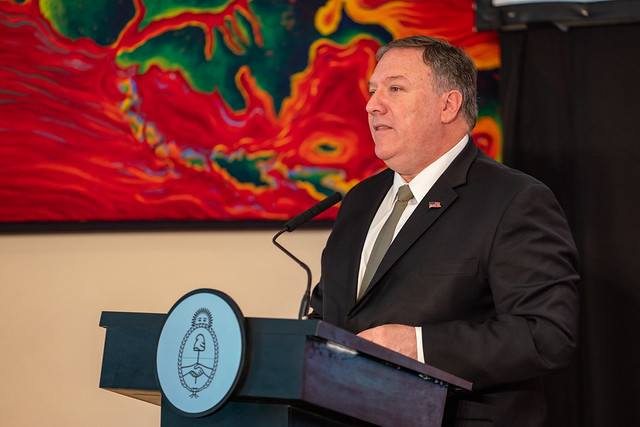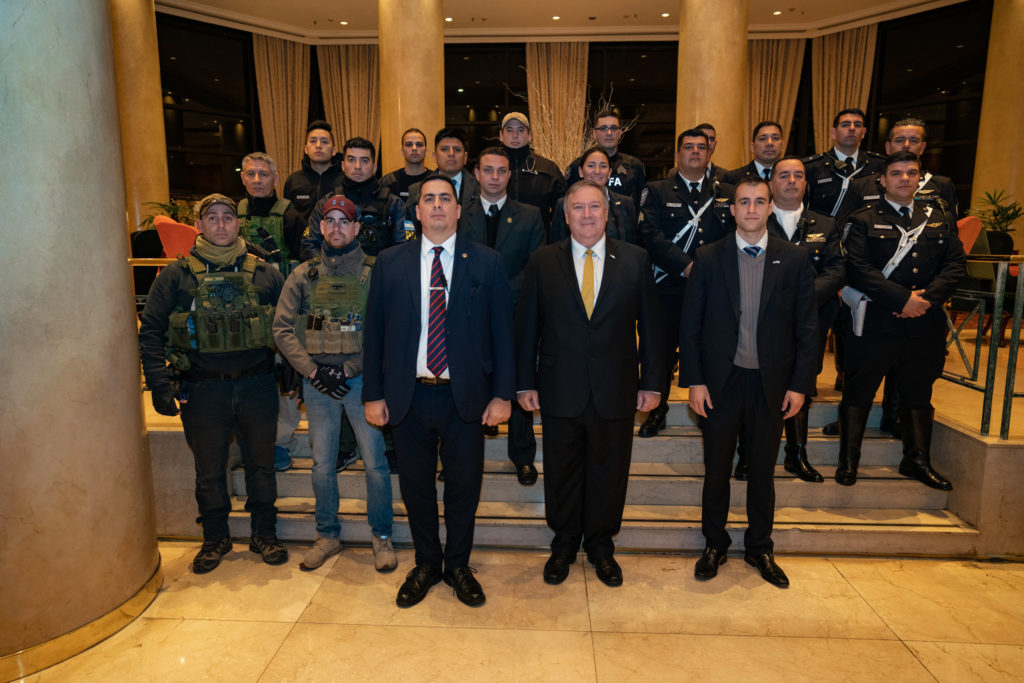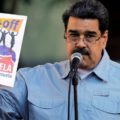Secretary of State Mike Pompeo has announced the formation of a U.S.-led international “Commission on Unalienable Rights.”

U.S. Secretary of State Michael R. Pompeo delivers remarks on July 19, 2019. [State Department photo by Ron Przysucha]
The commission is designed to bring together human rights experts, philosophers, and activists, Republicans, Democrats, and Independents of varied background and beliefs, who will provide the Secretary of State with advice on human rights grounded in America’s nation’s founding principles and the principles of the 1948 Universal Declaration of Human Rights. Pompeo explained that the “American commitment to uphold human rights played a major role in transforming the moral landscape of the international relations after World War II, something all Americans can rightly be proud of. Under the leadership of Eleanor Roosevelt, the 1948 Universal Declaration on Human Rights ended forever the notion that nations could abuse their citizens without attracting notice or repercussions.”

The Secretary of State noted that under President Ronald Reagan, a human rights revolution toppled the totalitarian regimes of the former Soviet Union. In the 21st century, “the language of human rights has become the common vernacular for discussions of human freedom and dignity all around the world.”
While emphasizing the key role America has had in introducing the concept of “Unalienable Rights,” Pompeo gave recognition to the contributions of other nations. He reminded listeners of the warnings of Vaclav Havel, a Czech statesman, writer and former dissident, who served as the last President of Czechoslovakia from 1989 until the dissolution of Czechoslovakia in 1992 and then as the first President of the Czech Republic from 1993 to 2003. He was a hero of the late-20th-century human rights movement, but noted that “…words like “rights” can be used for good or evil; ‘they can be rays of light in a realm of darkness … [but] they can also be lethal arrows.’ Pompeo add that “As Rabbi Jonathan Sacks has observed, the evils of any time and place will be justified in whatever is the dominant discourse of that time and of that place. We must, therefore, be vigilant that human rights discourse not be corrupted or hijacked or used for dubious or malignant purposes.”
Pompeo emphasized that it has been 70 years since the Universal Declaration of Human Rights, bit nevertheless terrible assaults on human rights and dignity continue across the planet. Sometimes, the perpetrators claim that they are doing so in the name of human rights.”
The Secretary of State reported that even “International institutions designed and built to protect human rights have drifted from their original mission. As human rights claims have proliferated, some claims have come into tension with one another, provoking questions and clashes about which rights are entitled to gain respect. Nation-states and international institutions remain confused about their respective responsibilities concerning human rights.”
Professor Mary Ann Glendon, the Learned Hand Professor of Law at Harvard Law School, will serve as the Commission’s Chair. Other Commission members will include Russell Berman, Peter Berkowitz, Paolo Carozza, Hamza Yusuf Hanson, Jacqueline Rivers, Meir Soloveichik, Katrina Lantos Swett, Christopher Tollefsen, and David Tse-Chien Pan. Kiron Skinner will serve as the head of the executive secretary of the committee, and Cartright Weiland will serve as Rapporteur.
The Commission is charged with key questions: What does it mean to say or claim that something is, in fact, a human right? How do we know or how do we determine whether that claim that this or that is a human right, is it true, and therefore, ought it to be honored? How can there be human rights, rights we possess not as privileges we are granted or even earn, but simply by virtue of our humanity belong to us? Is it, in fact, true, as our Declaration of Independence asserts, that as human beings, we – all of us, every member of our human family – are endowed by our creator with certain unalienable rights?
Frank Vernuccio serves as editor-in-chief of the New York Analysis of Policy and Government.

















Follow Us